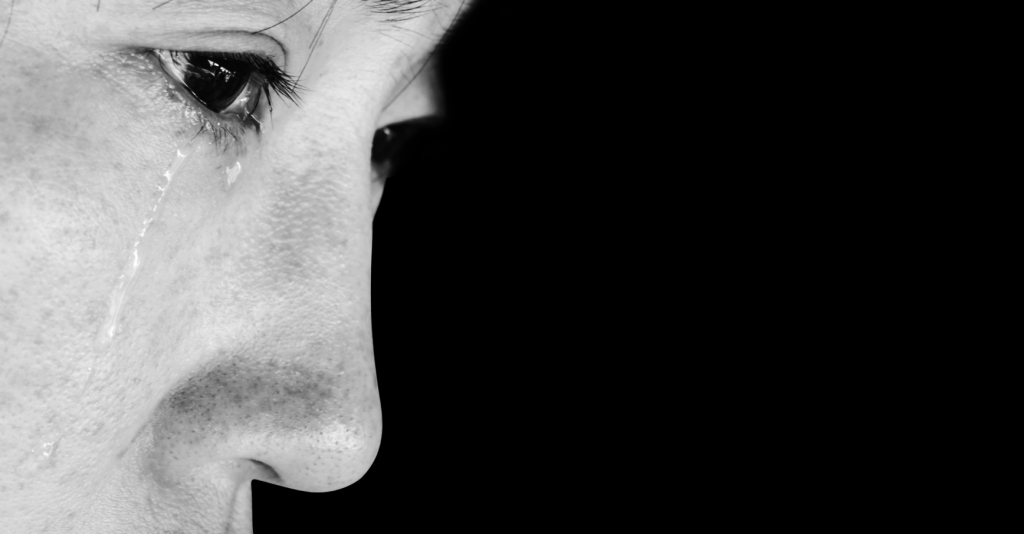Online anonymity can be a powerful tool. It can play a crucial role in safeguarding freedom of speech and give people who are too afraid to express their opinions in public a chance to share their views while being shielded by the Internet. Unfortunately, however, many individuals use this power of anonymity to attack people they’ve never met before, particularly those in the entertainment industry.
For some, the abuse becomes unbearable. On May 22, Hana Kimura, a professional wrestler and a member of the popular reality TV show “Terrace House,” revealed that she had been receiving “nearly 100 frank opinions every day.” She added that she couldn’t deny how hurt she was and that she didn’t want to be “a human anymore.” In a final post on Instagram, she shared a picture of herself and her cat with the words: “I love you, have a long, happy life. I’m sorry.”
View this post on Instagram
The following day came the tragic news that the 22-year-old reality TV star had passed away. Though the cause of death was never made official, it’s widely believed that she took her own life due to the growing number of hurtful comments she had been receiving. The trigger for those was nothing but an on-screen argument in the house that had escalated. Viewers of the show who disagreed with her took to her social media page to call her a “gorilla” and asked her to “please disappear.” She replied: “If I do, will people love me?”
No longer acceptable
Kimura’s death led to an outpouring of grief both within and outside of Japan. It also sparked an online debate about cyberbullying in Japan, with growing calls for the implementation of stricter measures to tackle what is becoming an increasingly problematic issue here.
“We have to get rid of the belief that you can just say anything you want to so-called famous people,” wrote fellow housemate Emika Mizukoshi, who herself had been on the receiving end of some spiteful comments from viewers.
“If you criticize someone, you should speak up using a real name. I think there should be a serious punishment for such slander,” tweeted former Prime Minister Yukio Hatoyama.
Zozotown founder Yusaku Maezawa commented, “Excessive defamation should be severely punished. Victims should not ignore the abuse, but to file a complaint. The actions of the victims will serve as an overall deterrent.”
Easier said than done
Regrettably, that isn’t as easy it sounds. Although victims of online abuse can request information about abusive senders to demand compensation for a violation of human rights, the process is long, complicated and costly. Those who can afford to go down that route are often left disappointed — online bullies are rarely identified because providers don’t always see their comments as a clear contravention of the rules. Or the comments have been long deleted by the time someone takes action.
The laws are therefore not particularly effective in protecting victims, partially because they had been written before the days of Twitter, Facebook and Instagram.
“Those in power need to recognize that mental health is just as important as physical health for the overall wellbeing of the population.”
Yet, cyberbullying has been on the rise exponentially over the past two decades. In 2001, there were 2,267 complaints to the police concerning cyberbullying. Five years later, in 2016, the numbers had grown by 3.5 times to 8,037 — while the latest data from 2017 stands at 11,749 cases. It is evident that unless concrete measures are taken sooner, the lives and mental stability of many more victims could be put at risk.
Call for stricter anti-cyberbullying regulations
Hana Kimura’s untimely death and the sheer amount of voices raised on the subject showed that people have had enough of the vitriol. Many began demanding that something be at last done to put a stop to it. As public pressure mounts, organizations within both the public and private sectors have decided to act, vowing to toughen regulations on offensive and potentially distressing posts.
Two days after Kimura’s death, Japanese Chief Cabinet Secretary Yoshihide Suga told reporters that the government had opened discussions regarding a disclosure (under a related law of information) on online users who have made abusive and defamatory statements online.
Communications Minister Sanae Takaichi also hurried to comment on Kimura’s passing and its circumstances by telling reporters that “It’s necessary to properly implement procedures to disclose information on senders in order to curb online abuses and rescue victims.” She added that this action would require a “sense of speed,” suggesting the law could be amended by the end of 2020.
“We have to get rid of the belief that you can just say anything you want to so-called famous people.”
A taskforce set up by the Liberal Democratic Party is calling for an easing of conditions required to request the disclosure of personal information such as names, addresses and phone numbers so those posting offensive messages can be easily identified. It also proposes to extend the period providers keep users’ access logs as well as more severe punishments for criminal contempt.
SMAJ, an industrial group whose members include Line, Facebook and Twitter, said that they would ban users from posting messages intended to defame or insult others. Yahoo Japan meanwhile announced that it would provide social media firms with artificial intelligence technology to detect inappropriate posts.
Freedom of expression and strengthening anti-cyberbullying laws
Tohko Tanaka, a professor of media studies at Otsuma Women’s University, believes these changes are necessary to avoid more tragedies occurring in the future, yet during a recent interview with NHK, she was also keen to stress the importance of freedom of expression.
“Of course, false accusations and hostile verbal attacks – especially those directed at one person – shouldn’t be allowed,” she told Japan’s national broadcasting organization. “That has nothing to do with freedom of expression. I believe anonymity and free speech should be guaranteed. We need to have a deep discussion of how social media conversations can be regulated.”
These kinds of discussions are taking place around the globe as governments struggle to protect their citizens’ right to free speech on the one hand while at the same time attempting to legislate hate speech on the other. What constitutes the latter isn’t always clear and that’s why there’s no universally agreed definition. Comments can be interpreted in different ways which sometimes makes it hard to say whether a line has been crossed.
“Social media platforms have also created a climate where humiliating strangers is seen by some as acceptable behavior.”
Last September, a judge in Kansai ordered journalist Yasumi Iwakami to pay ¥330,000 in compensation to Toru Hashimoto for defamation of character after a post he retweeted suggested staff working under the former Osaka governor had been driven to suicide. As the comment was retweeted to a broad audience (over 180,00 followers) without additional comment, the judge felt it was fair to interpret it as an implicit endorsement of the original post.
More recently, Shiori Ito, the face of Japan’s #MeToo movement, announced that she had filed a lawsuit against right-wing political cartoonist Toshiko Hasumi for defaming her on Twitter by implying that she had pretended to be a rape victim (in 2019, Ito won a civil case against a former TBS senior journalist she says raped her). The journalist is also suing two other people for retweeting the posts that Hasumi insists were works of fiction.
“Some people say you should just refrain from reading comments online, but social media has become an essential part of our lives and it is extremely difficult not to see them,” said Ito at a press conference.
Social media platforms, which have otherwise helped us to connect around the world and instigate global protests against social injustice, have also created a climate where humiliating strangers is seen by some as acceptable behavior. Open displays of schadenfreude (the German word for finding pleasure at the misfortune of others), are now more prevalent than ever. Perhaps even more so in times of forced social distancing and discouraged face-to-face interactions.
Understanding the roots of bullying as a means to eradication
There’s a tendency for people to feel less empathy when it comes to online interactions as senders are detached from the consequences of their actions. For those on the receiving end, cyberbullying is potentially more hurtful than face-to-face bullying as messages are permanent and in this digital age, it’s hard to find shelter from the abuse.
Min Ku, the Kansai outreach coordinator for nonprofit organization TELL, describes cyberbullying as “insidious,” a problem that may seem relatively harmless at first but one that can soon spread like wildfire, causing lots of damage and in extreme cases leading to suicide. Young people are particularly vulnerable as their identities are still developing, and yet, as Ku believes, they aren’t receiving enough support because of Japan’s neglectful approach to mental health.
“It’s great that the government recognizes online abuse as being harmful and we hope there will be more measures to combat it in the future, but that in itself isn’t enough,” she told TW in a recent interview. “Those in power need to recognize that mental health is just as important as physical health for the overall wellbeing of the population. As individuals, practicing how to take care of yourself mentally is one of the most beneficial skills you can learn in life.”
“We also need better education about the impact of bullying,” continues Ku. “Bullies often lash out because they don’t know other ways to handle stress and strong negative emotions. They’ll single out those who are distinctive or vulnerable as a way of exerting power. It’s often about some type of prejudice. At schools and in the workplace, kids and adults should be taught to be more accepting of those who are different.”
If you or someone close to you is going through an emotional crisis because of cyberbullying or anything else that may be putting your or their wellbeing at risk, please know that there are available resources to help. The TELL Lifeline is available for those who need free and anonymous counseling in English or Japanese at 03-5774-0992 (9am–11pm every day) or via chat (Friday, Saturday, Sunday 10:30pm–2am). In case of emergency, please call 119 in Japan for help.









